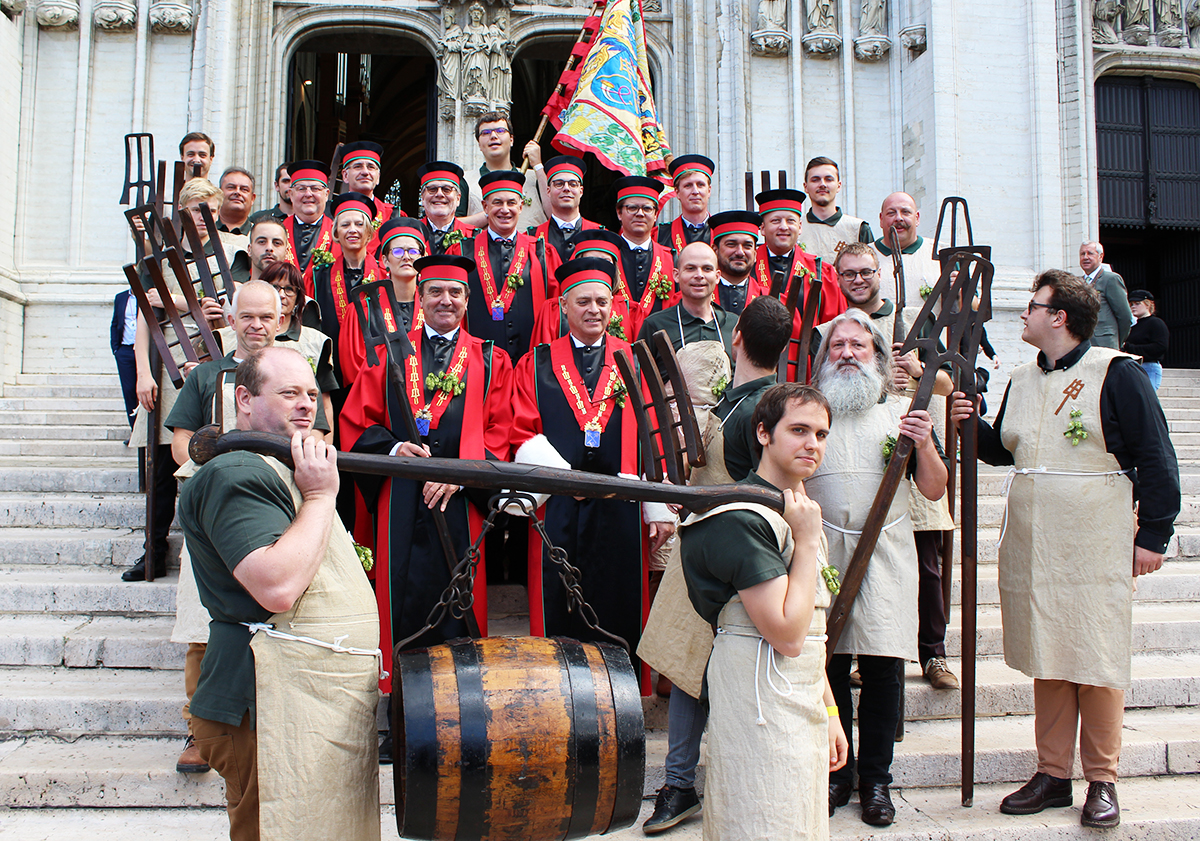Belgium – The Crossroads of Empire – 1st Century BC to 500 CE
Julius Caesar wrote more than 2000 years ago that the “Belgae” were the bravest under the Gauls. He defeated them, so he must have been braver. Although beer was the beverage of choice for the common people in the Roman empire, Julius was surprised to learn that those Gauls were drinking such high quantities of a more potent version.
During 400 years the influence of the Roman-culture was so strong that not only the wine-making made its way up to the North but also the Celtic languages of the Gauls were gradually replaced by a “Roman” language which is the origin of French. In the next centuries, for more than 1000 years, when the average temperatures were higher than today, wine was also cultivated in what is now Belgium.
In several of the Belgian Beers, you still can enjoy the influence of the wine-making: the spontaneous fermented lambics (Boon) the aging in wine-casks (Petrus Aged Pale) and the refermentation in the bottles (Gulden Draak, Piraat & Chimay) and the brewing styles of the Catholic Abbeys (Chimay, Augustijn & Bornem).
About 400 years after Julius Caesar, a mass-movement of tribes from the East, the Germans, moved into Western Europe and defeated, chased and absorbed the Gauls. In the world wars of the 20th century the Germans came back twice, but stayed only for a couple of year. Now, the Germans only come back once a year as tourists.

Under pressure from Asian tribes approaching their eastern borders the Germans moved west because of pressure on their Eastern borders by Asian tribes. These Asian warlords, like Atilla the Hun, were stopped in 451 CE on the plains of France and chased from Western Europe by a coalition of the German tribes and what was left of the Roman Empire. These Asian tribes continued to rule the Russian mainland for centuries.
The German Culture and Roman culture influenced each other but one never replaced the other. A cultural frontier emerged between the Roman-speaking tribes and the German-speaking tribes. This frontier divides modern Belgium right in the middle, stretches farther over Luxembourg, the Alsace (France), Switzerland . The Germans brought their grains and brewing techniques with them like the wheat-style beers (Wittekerke).
In the following centuries, the Low Lands (common name for what is now Belgium and the Netherlands), were sometimes independent and very prosperous, sometimes ruled and plundered by all surrounding nations including the Vikings, France, Austria, Spain, Germany . The benefit of these foreign invaders, is that it set the Belgian people on the quest to challenge authority and seek independence.
